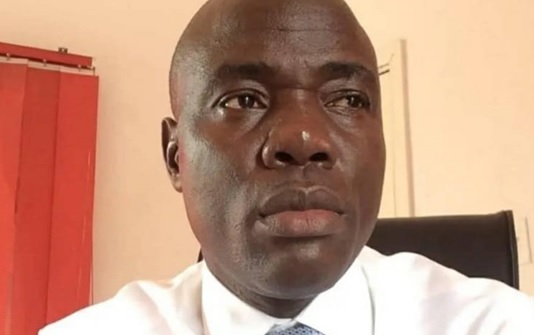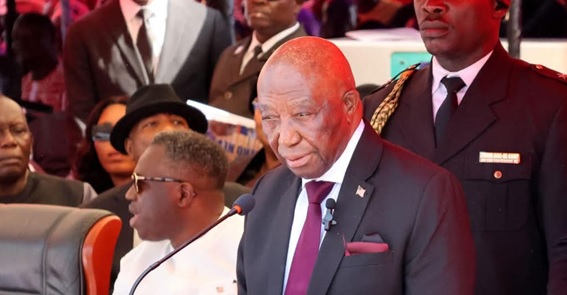MONROVIA – A defense lawyer representing one of the accused in the Capitol Building arson case has criticized the treatment of his client during the ongoing investigation, claiming that fundamental constitutional rights have been violated. Cllr. Jonathan Massaquoi, legal counsel for Thomas Etheridge, has accused the National Security Agency (NSA) of overstepping its authority in a manner that undermines the accused’s right to legal representation and a fair interrogation process.
According to Massaquoi, the investigation into the Capitol fire, which took place on December 18, 2024, has shifted focus to targeting specific individuals, including Etheridge. The lawyer claims that his client, who is currently in police custody, has been subjected to coercive questioning without being informed of his right to remain silent. Massaquoi insists that this lack of proper warning is a violation of Etheridge’s legal rights.
Furthermore, Massaquoi alleges that his client has been denied access to a lawyer of his choosing, despite repeated requests. He argues that this denial breaches both the Organic Law of Liberia and basic principles of justice that guarantee an accused person the right to counsel. Massaquoi emphasizes that the absence of legal representation at crucial stages of the investigation renders any statements made by Etheridge inadmissible in court.
The lawyer also expressed concern over the behavior of the NSA, accusing the agency of attempting to extract self-incriminating statements under duress. Massaquoi argues that such tactics are not only unethical but also unlawful, and could compromise the integrity of the investigation. He has called on the government to ensure that the rights of all suspects, including his client, are respected throughout the judicial process.
This latest development comes amidst growing public interest in the Capitol arson case, which has sparked widespread outrage due to the severe damage inflicted on the legislative building. The fire, which destroyed key parts of the Capitol, including the Joint Chamber and its iconic dome, has led to the arrest of several suspects, including Etheridge.
Despite the serious charges against Etheridge, Massaquoi maintains that the investigation must proceed within the bounds of the law, without violating his client’s rights. He has warned that any evidence obtained in violation of constitutional protections will be challenged in court.
As the investigation into the Capitol fire continues, Massaquoi’s allegations of rights violations have raised important questions about the fairness of the legal process. Critics argue that the treatment of suspects in such high-profile cases must be transparent and in strict adherence to legal standards, to maintain public trust in Liberia’s justice system.
At present, it remains unclear whether the NSA will respond to the accusations or take steps to address the concerns raised by the defense lawyer. However, the issue has sparked renewed attention to the ongoing debate about the protection of individual rights during criminal investigations in Liberia.
With the case continuing to unfold, legal experts are closely monitoring developments, as the potential ramifications of this controversy could extend beyond the Capitol fire itself.







